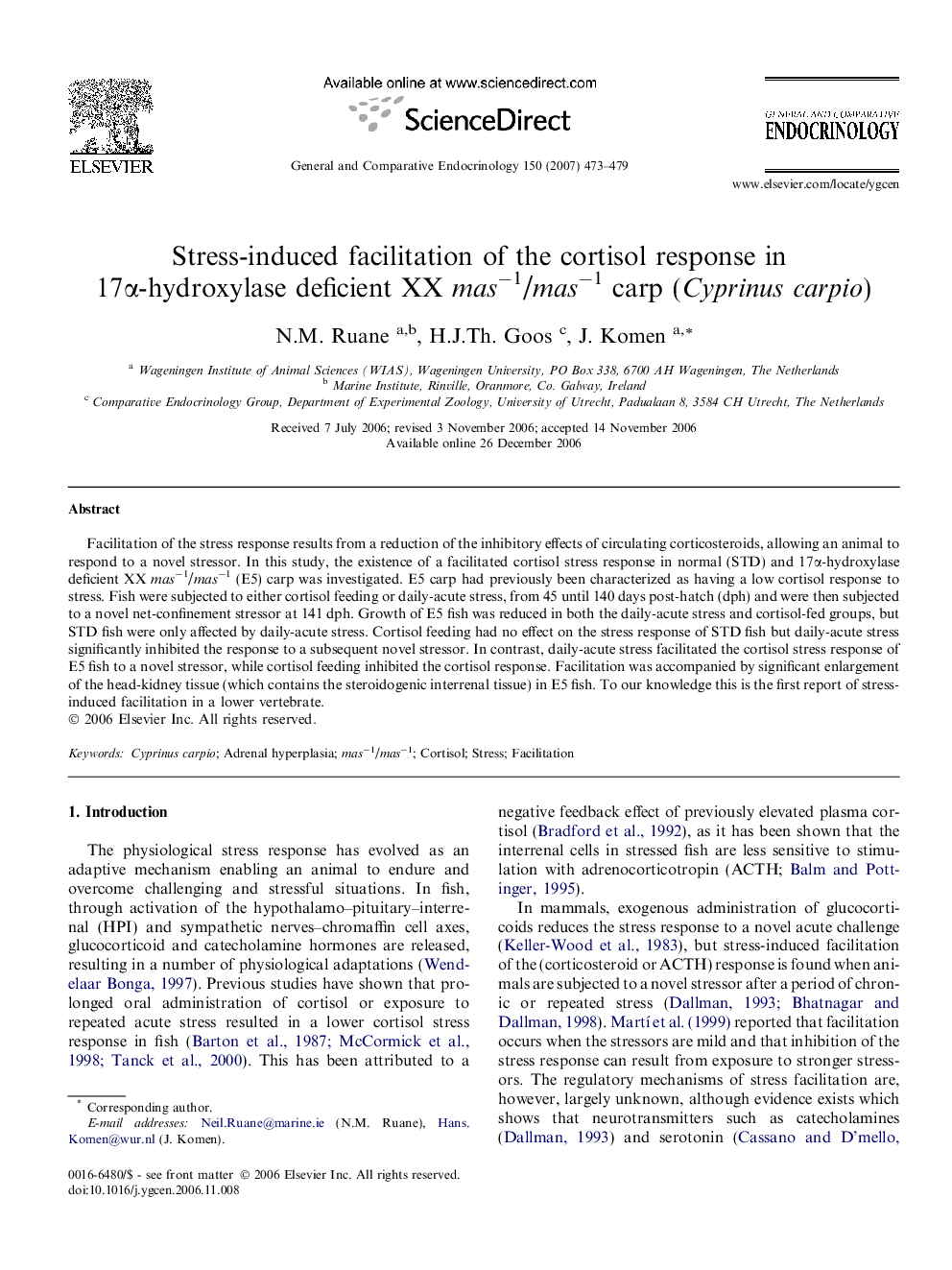| Article ID | Journal | Published Year | Pages | File Type |
|---|---|---|---|---|
| 2802089 | General and Comparative Endocrinology | 2007 | 7 Pages |
Abstract
Facilitation of the stress response results from a reduction of the inhibitory effects of circulating corticosteroids, allowing an animal to respond to a novel stressor. In this study, the existence of a facilitated cortisol stress response in normal (STD) and 17α-hydroxylase deficient XX masâ1/masâ1 (E5) carp was investigated. E5 carp had previously been characterized as having a low cortisol response to stress. Fish were subjected to either cortisol feeding or daily-acute stress, from 45 until 140 days post-hatch (dph) and were then subjected to a novel net-confinement stressor at 141 dph. Growth of E5 fish was reduced in both the daily-acute stress and cortisol-fed groups, but STD fish were only affected by daily-acute stress. Cortisol feeding had no effect on the stress response of STD fish but daily-acute stress significantly inhibited the response to a subsequent novel stressor. In contrast, daily-acute stress facilitated the cortisol stress response of E5 fish to a novel stressor, while cortisol feeding inhibited the cortisol response. Facilitation was accompanied by significant enlargement of the head-kidney tissue (which contains the steroidogenic interrenal tissue) in E5 fish. To our knowledge this is the first report of stress-induced facilitation in a lower vertebrate.
Related Topics
Life Sciences
Biochemistry, Genetics and Molecular Biology
Endocrinology
Authors
N.M. Ruane, H.J.Th. Goos, J. Komen,
